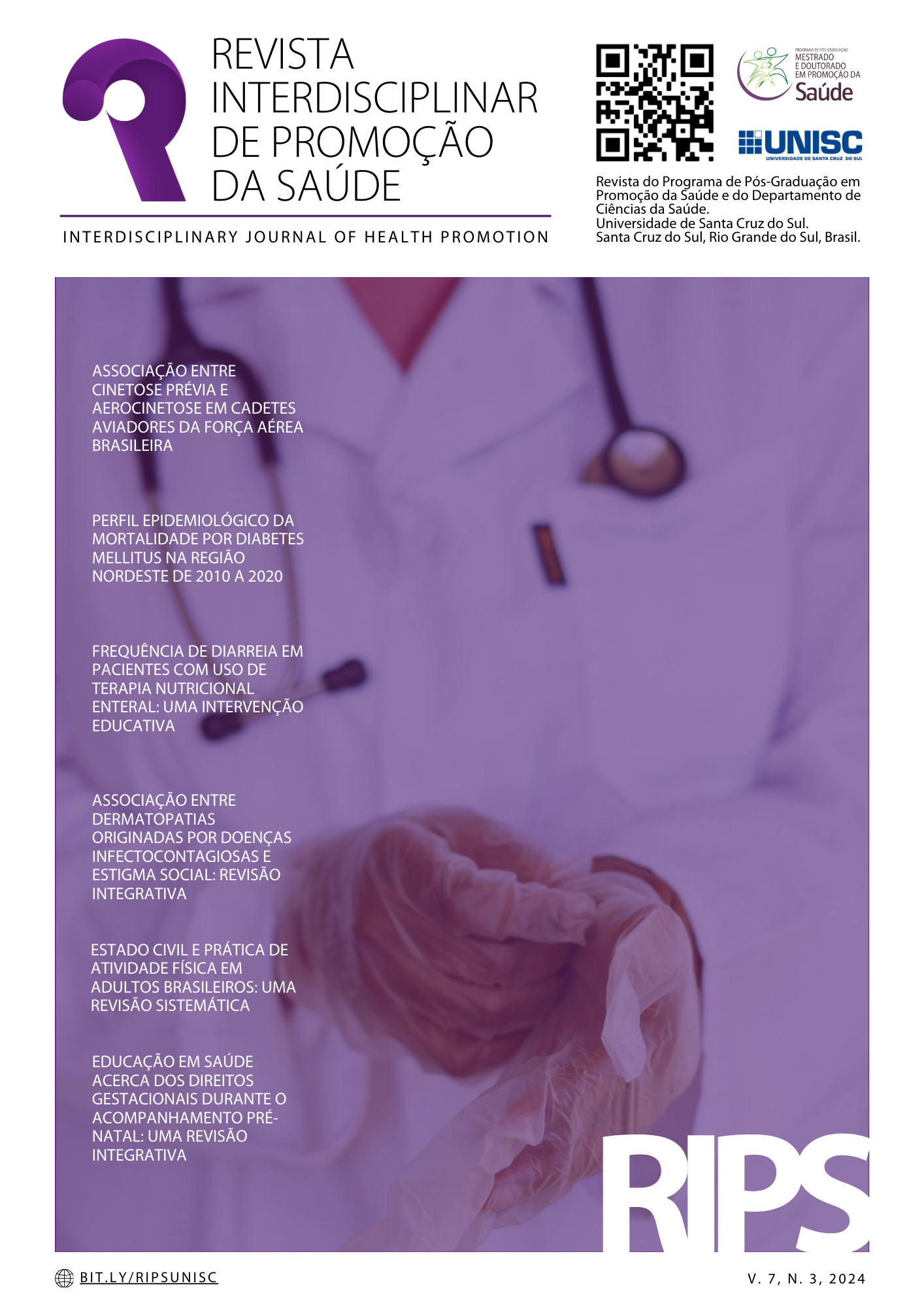Health education for pregnant women during prenatal care: an integrative review.
DOI:
https://doi.org/10.17058/rips.v7i3.18611Abstract
Introduction: The empowerment of women to demand their rights gradually instigates a process of autonomy and well-being, for pregnant women, this process becomes indispensable for a calm, diligent pregnancy and with less risk of obstetric violence. However, for public policies to be effective, it is essential that pregnant women, as primary beneficiaries of these rights, obtain knowledge and access to the information necessary to claim and demand them, with prenatal care being the most appropriate time to work this theme. Method: To achieve the proposed objectives, an integrative literature review study with a descriptive approach was carried out. Results: There was a low participation of pregnant women in health education actions during prenatal care aimed at good obstetric practices and gestational rights. About the methodologies adopted in the current literature, there were conversation circles, workshops, courses and educational games. As the groups of pregnant women are still little reported by pregnant women between surveys. Regarding the main topics addressed, guidance on risk signs in pregnancy and routine consultations and exams are included. On the other hand, issues related to women's rights while pregnant women, such as labor and delivery, the reference maternity hospital and the birth plan were rarely reported and addressed. Conclusion: Even finding records of health education actions in the literature, research carried out in several Brazilian states still report a large percentage of pregnant women who did not receive or received insufficient information on the subject, mainly about labor and delivery.
Keywords: Women's health; reproductive rights; Prenatal; Health education.
Downloads
Downloads
Published
How to Cite
Issue
Section
License
A submissão de originais para este periódico implica na transferência, pelos autores, dos direitos de publicação impressa e digital. Os direitos autorais para os artigos publicados são do autor, com direitos do periódico sobre a primeira publicação. Os autores somente poderão utilizar os mesmos resultados em outras publicações indicando claramente este periódico como o meio da publicação original. Em virtude de sermos um periódico de acesso aberto, permite-se o uso gratuito dos artigos em aplicações educacionais e científicas desde que citada a fonte conforme a licença CC-BY da Creative Commons.




